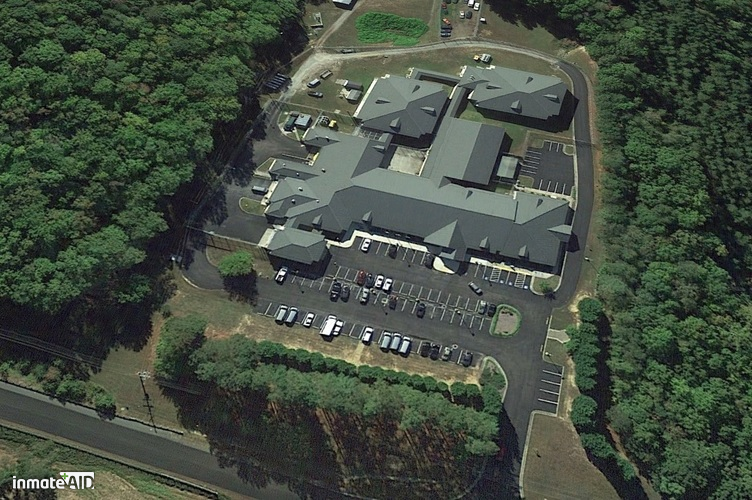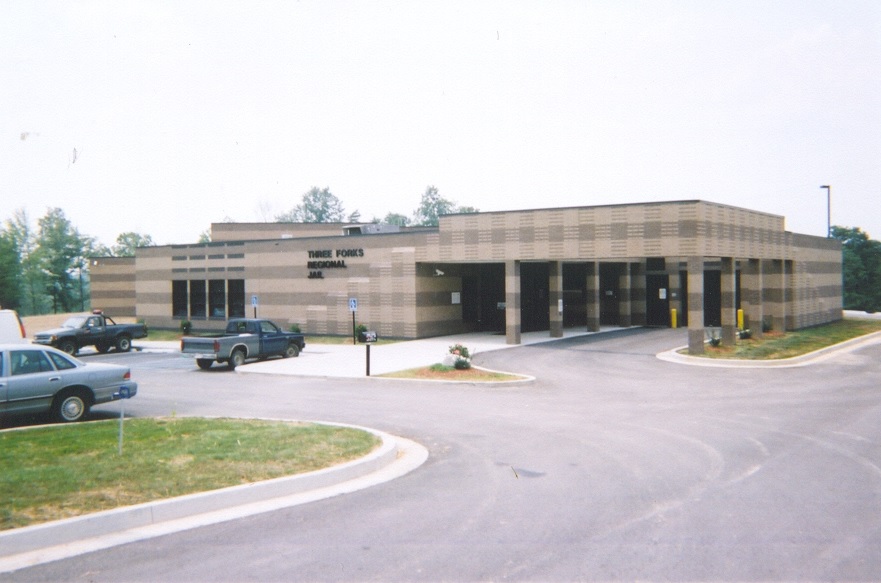Unlocking The Secrets Of Three Forks Regional Jail Phone Calls
Imagine this—you're stuck in a situation where someone you care about is behind bars at the Three Forks Regional Jail. You’re desperate to hear their voice, but navigating the phone system feels like trying to solve a Rubik’s Cube blindfolded. The good news? You’re not alone. Understanding how the Three Forks Regional Jail phone calls work can be a game-changer for staying connected with your loved ones.
Let’s face it, jail phone calls can be a maze of rules, fees, and restrictions. But don’t worry, we’ve got your back. In this article, we’ll break down everything you need to know about the Three Forks Regional Jail phone system. From understanding the basics to uncovering hidden costs, we’ll guide you step by step so you can focus on what matters most—connecting with your loved one.
Whether you’re a family member, a friend, or a legal representative, having access to reliable information about Three Forks Regional Jail phone calls is crucial. So, buckle up, because we’re about to dive deep into the world of jail communication and give you all the tools you need to stay connected.
Read also:Pepsi Jobs In Orlando Your Ultimate Guide To Landing Your Dream Job
Understanding the Basics of Three Forks Regional Jail Phone Calls
Alright, let’s start with the basics. The Three Forks Regional Jail uses a specialized phone system designed to monitor and manage inmate calls. This system is put in place to ensure security and compliance with legal regulations. But here’s the catch—it’s not as straightforward as dialing a number and chatting away.
When an inmate makes a phone call, they typically use a prepaid account or collect call service. The calls are usually routed through a third-party provider, which means there are fees involved. These fees can vary depending on the length of the call, the time of day, and the location you’re calling from.
For example, a 15-minute call might cost anywhere from $3 to $10, depending on the provider and the specific jail policies. It’s important to understand these costs upfront so you’re not hit with unexpected charges on your phone bill.
Who Can Receive Calls from Three Forks Regional Jail?
Not everyone can receive calls from inmates at the Three Forks Regional Jail. Typically, only pre-approved contacts are allowed to receive calls. This means you’ll need to provide the jail with a list of approved phone numbers. These numbers are then verified and added to the inmate’s call list.
Here’s a quick rundown of who can usually be on the approved list:
- Immediate family members (spouse, parents, siblings, children)
- Legal representatives
- Close friends or guardians
Remember, the jail has the final say in who can be added to the list, so it’s always best to confirm with them directly.
Read also:Unlocking The Secrets Of Albuquerque Nm Inmates A Deep Dive Into The Justice System
How the Three Forks Regional Jail Phone System Works
Now that you know the basics, let’s dive into how the phone system actually works. The Three Forks Regional Jail uses a state-of-the-art communication platform that allows inmates to make calls under strict supervision. This platform ensures that all calls are recorded and monitored for security purposes.
Here’s a step-by-step breakdown of how the process works:
- Inmate initiates the call by dialing the pre-approved number from the jail phone.
- The call is routed through the third-party provider, who verifies the number and charges the associated fees.
- The recipient receives the call and has the option to accept or decline it.
It’s worth noting that the calls are usually limited in duration, often ranging from 10 to 20 minutes, depending on the jail’s policies. This limitation is in place to ensure fair access to the phone system for all inmates.
Types of Calls Available
There are two main types of calls available through the Three Forks Regional Jail phone system:
- Prepaid Calls: Inmates can set up a prepaid account using funds deposited by family members or friends. This option allows them to make calls without charging the recipient’s phone bill.
- Collect Calls: If a prepaid account isn’t available, inmates can make collect calls. In this case, the recipient is responsible for paying the call charges.
Both options have their pros and cons, so it’s important to weigh them carefully based on your situation.
The Cost of Staying Connected: Breaking Down the Fees
Let’s talk money, because let’s be real—phone calls from jail can get expensive. The fees associated with Three Forks Regional Jail phone calls can add up quickly, especially if you’re making frequent calls. But don’t panic just yet. We’re here to break it all down for you.
The cost of a call typically includes:
- A connection fee, which is charged every time a call is initiated.
- A per-minute fee, which varies depending on the provider and the length of the call.
For example, a 10-minute call might cost $5, with a $2 connection fee and $0.30 per minute. These fees can vary slightly based on the time of day and the location you’re calling from.
Ways to Minimize Costs
There are a few strategies you can use to keep costs under control:
- Set up a prepaid account to avoid unexpected charges.
- Limit call durations to reduce per-minute fees.
- Check with the jail for any discounts or promotions offered by the phone provider.
By being proactive and informed, you can significantly reduce the financial burden of staying connected with your loved one.
Staying Connected: Tips for Effective Communication
Communication is key, especially when it comes to maintaining a relationship with someone in jail. But with limited call time and strict regulations, it’s important to make the most of every conversation. Here are some tips to help you stay connected effectively:
- Plan Your Conversations: Before each call, think about what you want to discuss. This will help you stay focused and make the most of your limited time.
- Be Patient and Understanding: Remember that the person on the other end is dealing with a lot of stress and uncertainty. Be patient and offer support whenever possible.
- Stay Positive: Focus on positive topics and avoid bringing up anything that might upset or frustrate your loved one.
By following these tips, you can create a supportive and meaningful connection, even through the limitations of the jail phone system.
Overcoming Communication Barriers
Sometimes, communication barriers can make it difficult to stay connected. These barriers might include language differences, hearing impairments, or technical issues. If you’re facing any of these challenges, here are a few solutions:
- Use translation apps or services to bridge language gaps.
- Request accommodations for hearing impairments, such as text-based communication options.
- Reach out to the jail’s administration if you’re experiencing technical issues with the phone system.
Don’t let barriers stand in the way of your connection. With a little effort and creativity, you can overcome them and stay in touch.
Legal Aspects of Three Forks Regional Jail Phone Calls
It’s important to understand the legal aspects of jail phone calls, especially when it comes to privacy and monitoring. The Three Forks Regional Jail, like most correctional facilities, reserves the right to monitor and record all inmate calls. This is done to ensure the safety and security of the facility.
However, there are some exceptions. Calls made to legal representatives are typically private and not subject to monitoring. This is to protect attorney-client privilege and ensure that inmates can receive proper legal counsel.
Understanding Your Rights
Knowing your rights is crucial when dealing with the legal aspects of jail phone calls. Here are a few key points to keep in mind:
- You have the right to know if a call is being monitored or recorded.
- You have the right to privacy when speaking with legal representatives.
- You have the right to file a complaint if you believe your rights have been violated.
If you’re unsure about your rights, don’t hesitate to reach out to a legal expert or the jail’s administration for clarification.
Common Misconceptions About Jail Phone Calls
There are a lot of myths and misconceptions floating around about jail phone calls. Let’s clear some of them up:
- Myth #1: All calls are private. Reality: Only calls to legal representatives are private. All other calls are monitored and recorded.
- Myth #2: You can avoid fees by using a different provider. Reality: The jail contracts with a specific provider, so there’s no way around the fees.
- Myth #3: You can make unlimited calls. Reality: Call durations are strictly limited to ensure fair access for all inmates.
By separating fact from fiction, you can make more informed decisions about how to stay connected with your loved one.
Addressing Concerns and Questions
If you have concerns or questions about Three Forks Regional Jail phone calls, don’t hesitate to reach out to the jail’s administration. They’re there to help and can provide you with the information you need to navigate the system.
Resources and Support for Families
Staying connected with a loved one in jail can be challenging, but you don’t have to go through it alone. There are plenty of resources and support systems available to help you navigate the process.
- Support Groups: Joining a support group can provide you with emotional support and practical advice from others in similar situations.
- Legal Assistance: If you’re facing legal challenges, consider reaching out to a lawyer or legal aid organization for guidance.
- Community Programs: Many communities offer programs designed to support families of incarcerated individuals.
Take advantage of these resources to build a strong support network and make the process a little easier.
Where to Find Help
Here are a few organizations that can provide additional support:
These organizations are dedicated to advocating for the rights of incarcerated individuals and their families.
Conclusion: Staying Connected Matters
In conclusion, understanding the Three Forks Regional Jail phone system is essential for maintaining a connection with your loved one. By familiarizing yourself with the basics, fees, and legal aspects, you can navigate the system with confidence.
We encourage you to take action by setting up a prepaid account, planning your conversations, and reaching out for support when needed. Remember, staying connected is not just about phone calls—it’s about building a strong, supportive relationship that can withstand any challenge.
So, what are you waiting for? Take the first step today and start building a stronger connection with your loved one. And don’t forget to share this article with others who might find it helpful!
Table of Contents:
- Understanding the Basics of Three Forks Regional Jail Phone Calls
- How the Three Forks Regional Jail Phone System Works
- The Cost of Staying Connected: Breaking Down the Fees
- Staying Connected: Tips for Effective Communication
- Legal Aspects of Three Forks Regional Jail Phone Calls
- Common Misconceptions About Jail Phone Calls
- Resources and Support for Families


